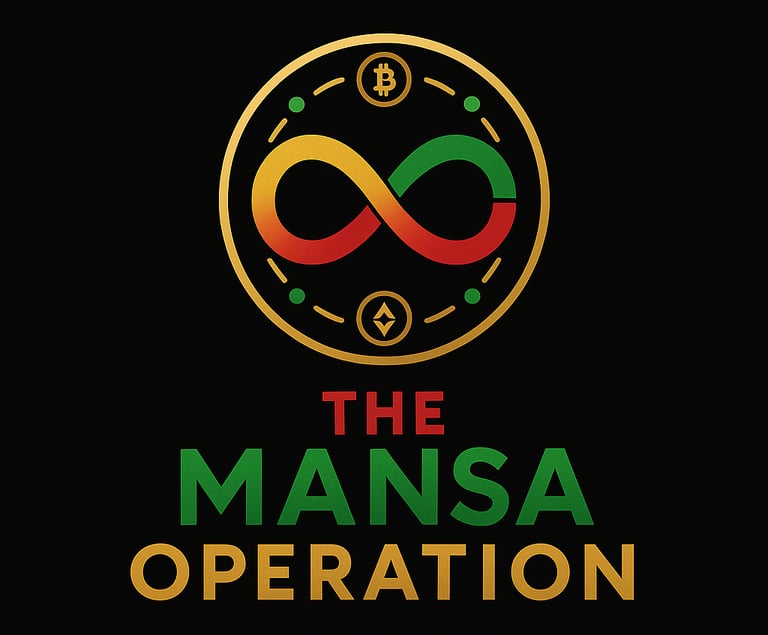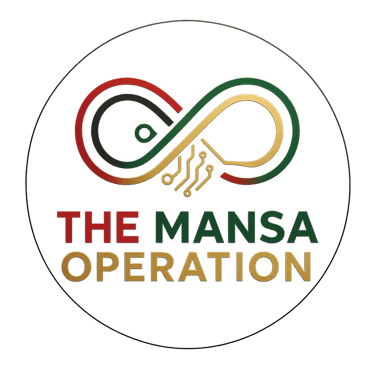The Future of Reparations Is On-Chain: Inside the Mansa Operation
6/28/20251 min read


Introduction to the Mansa Operation
The Mansa Operation represents a significant evolution in the dialogue surrounding reparative justice. Established as a blockchain-based platform, it seeks to address historical injustices faced by the African diaspora, utilizing cutting-edge technology to drive change. By leveraging cryptocurrency-generated income, the Mansa Operation aims to fund reparations in a way that is transparent, efficient, and future-focused.
The Mechanism of Change
At the core of the Mansa Operation is its unique reserve-backed token, known as O4ACZ. This innovative token is designed to facilitate wealth redistribution, directing resources to the descendants of those oppressed by systemic injustices. The mechanism relies on smart contracts, which ensure that funds are automatically allocated based on predefined criteria, enhancing both accountability and trust within the system.
Impact on Wealth Redistribution
The implications of the Mansa Operation extend far beyond mere financial transactions. By integrating blockchain technology into the reparations discourse, the initiative not only aims to rectify historical inequities but also seeks to empower communities through improved economic opportunities. With protocols that prioritize inclusivity, the Mansa Operation fosters a sense of ownership among participants while generating sustainable income streams for ongoing funding.
As cryptocurrency becomes more mainstream, the potential for on-chain reparations to create a ripple effect in society grows. The Mansa Operation exemplifies how technology can be harnessed to address social justice issues while promoting a more equitable future.
In conclusion, the Mansa Operation is more than just a token; it represents a forward-thinking approach to reparative justice. By activating the power of blockchain, it lays the groundwork for a more inclusive and just society, ensuring that future generations carry forward the mission of equity and acknowledgment of past wrongs.
Empowerment
Creating wealth through crypto for African Americans.
Contact
© 2025. All rights reserved.
Sign up for our Newsletter
Click here: ONE4ALLCOIN.COM
For more information of O4ACz token
